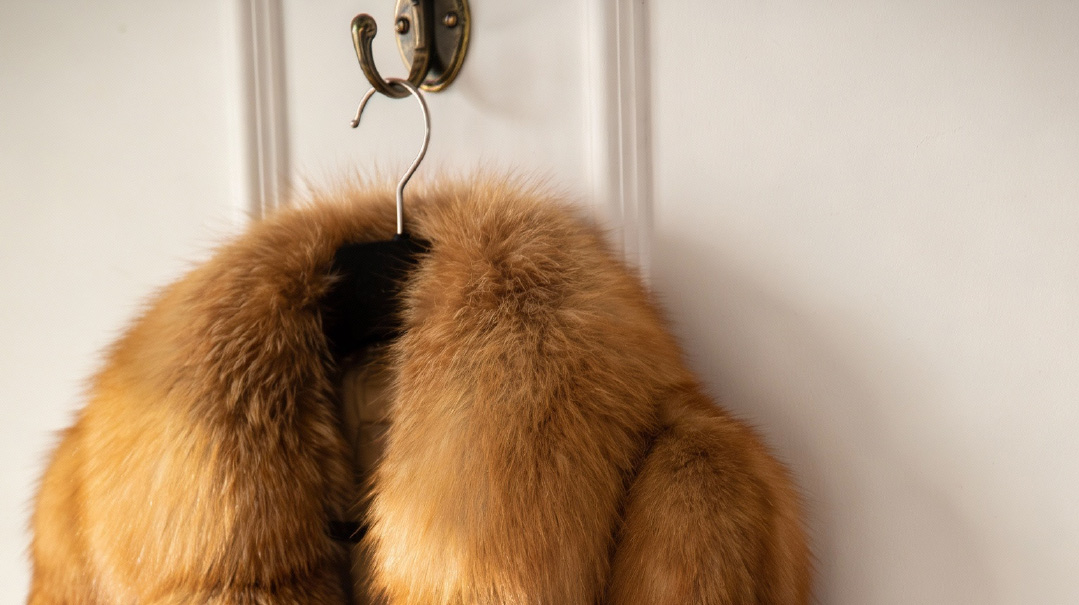The Bayit Vegan Apartment
| April 1, 2025True tales from the corners of our world

Rabbi Hershkowitz's Story
The Background
Today Rabbi Chaim Hershkowitz (name changed) is involved in many special projects. Looking at him, one would never guess the challenge that came his way as a young man — and the way he used it to change his life for the better. Here is his story, in his own words.
It was 1984, when I was 26. My wife and I had been married for a number of years and had still not been blessed with children. Someone suggested that we visit a fertility specialist at UCLA Medical Center. For the purpose of this story, I will refer to this individual as Dr. Keith Jordan.
It took months to get an appointment with him. When the day finally came, we waited another two hours in the waiting room. When we finally got our ten minutes of the great man’s time, he instructed us to take a certain test.
“If the answer comes back negative, it means that you are not treatable,” he declared.
Not the world’s greatest diagnosis, but I am a positive person by nature, so I chose not to dwell on the darker possibilities.
Two weeks later, though, I came home and found my wife in tears. She had called the doctor to get the result of the test. Not only had he delivered the crushing news that it was negative, but he’d rubbed salt in the wound.
“He said, ‘Why don’t you and your husband go pray to your voodoo doll or whatever it is that you people believe in? I promise you, you and your husband will never have any children.’ ”
My first reaction was fury at this arrogant doctor, who had just reduced my wife to tears, making such a promise instead of offering sympathy and hope.
When the initial fury faded, I found myself thinking, What a strange thing just occurred. Why on earth do I need this guy to tell me to go and pray? Maybe Hashem is trying to tell me something.
I was then a happy-go-lucky kind of person who had never had a serious life problem. Later, I would tell Rav Wolbe that the incident with Dr. Jordan actually reminded me that I should never take anything for granted, and that I had to start taking my davening more seriously. After that, I began to put real effort into my tefillos.
When we’d been married for almost seven years, we decided to take a sabbatical in Eretz Yisrael. We pictured ourselves basking in the holiness of the streets of Yerushalayim. We had no obligations holding us back, since we were still sadly waiting for children. Off we flew to Yerushalayim, renting a ground-floor apartment in the Bayit Vegan neighborhood.
When my in-laws came to visit us, my shver, a veteran talmid of Rav Moshe Shapira, asked his rebbi, who lived just a few buildings away, if he could come over for a visit. To my shver’s pleasant surprise, Rav Moshe replied, “Don’t bother, I’ll come to you after the seudah on Friday night.”
I don’t have to tell you how much we prepared for his visit, which we enjoyed to no end. When the time came for Rav Moshe to leave, my shver asked if he could give us a brachah for children.
Rav Moshe agreed, and said, “Tiheyu lachem tzaakot shel simchah babayit hazeh [May there be cries of happiness in this house].”
His words were kind of cryptic, but we were still thrilled by his blessing.
Within a year we joyously welcomed our first daughter into the world. A few years later, we were overcome by more joy when we had twin girls.
After a number of years, when my daughters were a little older, we returned to the States.
I decided that the time had come for me to have a little conversation with Dr. Keith Jordan.
HE was not difficult to find. By this point, Dr. Jordan had been appointed the chairman of a major hospital and seemed to be at the very pinnacle of his profession.
“Can I go and pay him a visit?” I asked my rebbi.
“Yes,” he said. “You can go and remind him of the story. Just leave out the shtuch.”
I called the hospital and, unexpectedly, after being transferred a couple of times, I was put straight through to him. I explained that I was a former patient from 13 years prior and I wanted to follow up with him on some new information. He told me he had an opening that afternoon, and I could come right over.
I still remember that 45-minute drive like it happened yesterday — the skies opened up in a downpour from the moment I got in my car until I pulled up to the hospital. I took the elevator up to the top floor of the hospital, where Dr. Jordan had his office. The receptionist waved me in.
It was obvious that Dr. Jordan didn’t recognize me. I couldn’t blame him for that — it had been 13 years after all. I sat down across from his desk and he waited to hear why I had come to see him.
I explained that my wife and I were his patients, that he told us to take a particular test that would indicate whether we would be able to have children. I told him that I had come home and found my wife in tears.
“She told me that she had just gotten off the phone with you,” I said calmly. “You gave her the result of the test — which was bad news for us. And then you said, ‘Why don’t you and your husband go pray to your voodoo doll or whatever it is that you people believe in? I promise you, you and your husband will never have any children.’ ”
Dr. Jordan paled. It was clear that he recalled the conversation and the hurtful things he had said.
“You may be wondering why I came to remind you of this after so many years — and the answer is this,” I said. “I want to thank you.”
His distress turned to shock.
“Yes, I want to thank you, because you told my wife that we should pray to our G-d. I want you to know that I took your advice and I prayed — and the G-d of Israel was very good to us, because we now have three children.”
Dr. Jordan was utterly speechless. After a few moments of collecting his thoughts, he finally spoke.
“I don’t really have anything to say in my defense,” he admitted. “All I can say is that I was totally wrong for saying such things to a patient and that I failed in my role as a doctor.”
I could see that he was honestly sorry for what he did, and that his apology was coming from a place of sincerity. I left shortly afterward — message delivered and received.
Fast-forward to 2012.
Our kids were all grown up. I had been fortunate to develop my own close relationship with Rav Moshe Shapira. Our oldest daughter got engaged to a boy in Eretz Yisrael.
The wedding was set for Rosh Chodesh Tammuz in Yerushalayim. We put the word out that we needed a place to stay, and some old friends offered us the use of their apartment in Bayit Vegan.
The address? You guessed it. The same apartment where Rav Moshe Shapira had uttered those enigmatic words 23 years earlier: “Tiheyu lachem tzaakot shel simchah babayit hazeh.”
As the kallah and her mother and sisters got ready on the wedding day, the rooms were filled with the cries of happiness that one hears in a kallah’s home. On that wonderful day, the 23-year-old puzzle was finally solved.
We were fortunate to be graced with Rav Moshe’s presence at the wedding — a night that was filled with pure, unadulterated simchah. When I met Rav Moshe the next day, I was able to relate the story of how the words of his brachah had come true in the most amazing way.
Rav Moshe dismissed the story with a smile, commenting wryly, “B’itonut shel hayom, hayu korim et zeh mofet — In today’s newspapers, they’d probably call it a miracle….”
His tone suggested that it was anything but. But we knew the truth.
(Originally featured in Mishpacha, Issue 1056)
Oops! We could not locate your form.







